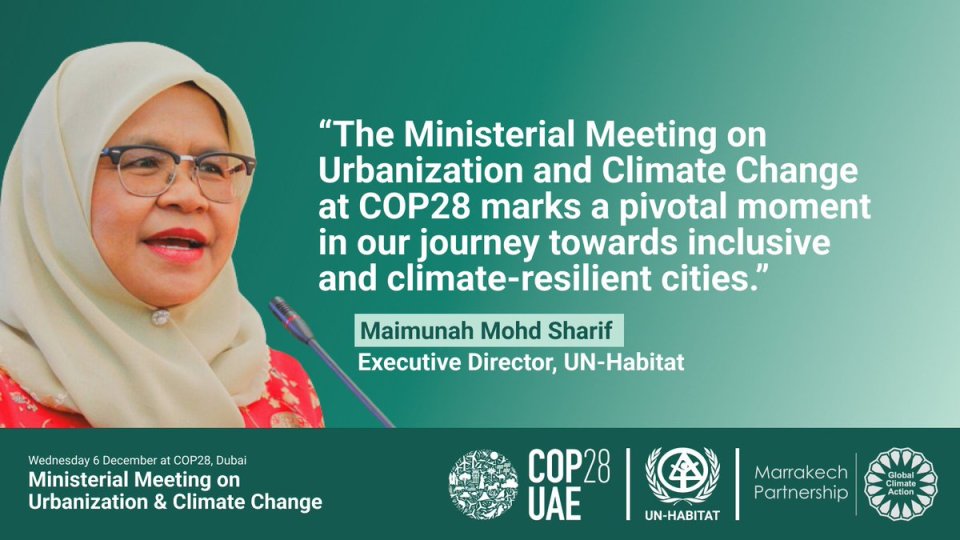Meet Maimunah Sharif: The Financial World’s Catalyst joining Private Finance and Public Projects to change Climate Action at COP28 and Beyond

As the curtains closed on World Cities Day and the stage set for COP28, one figure stands at the intersection of urban development and climate change – Maimunah Mohd Sharif. The Executive Director of UN-Habitat has not only shaped the discourse at these crucial forums but also emerged as a pivotal influence in driving the global ESG agenda, particularly in the realm of urban sustainability.

Sharif’s role at World Cities Day was instrumental in setting the tone for COP28. Her focus on the inextricable link between urbanisation and climate change challenges the traditional view of urban development. Cities, often seen as the epicentres of economic progress, are now being reimagined as key players in the climate action narrative.
For the leadership teams in financial services, hedge fund managers, and senior executives reading City AM, Sharif’s message is clear and urgent: the involvement of the financial sector in sustainable urban development is not just beneficial but essential. Her advocacy for innovative financing models to support urban sustainability projects marks a call to action for the private finance sector. It’s a call to mobilise resources towards projects that not only promise economic returns but also contribute significantly to environmental and social governance (ESG) goals.
At COP28, Sharif has been vocally championing the need for collaborative efforts between governments, financial institutions, and the private sector. Her approach recognises the immense potential of cities as engines of growth and innovation, yet also as focal points for addressing climate change. This perspective is crucial for financial leaders, as it highlights the vast opportunities in investing in urban projects that align with sustainability targets.
Sharif’s work underlines the need for a paradigm shift in urban investment strategies. Her emphasis on nature-based solutions, resilience building, and efficient urban planning aligns with the broader ESG goals that are increasingly guiding investment decisions in the financial sector.